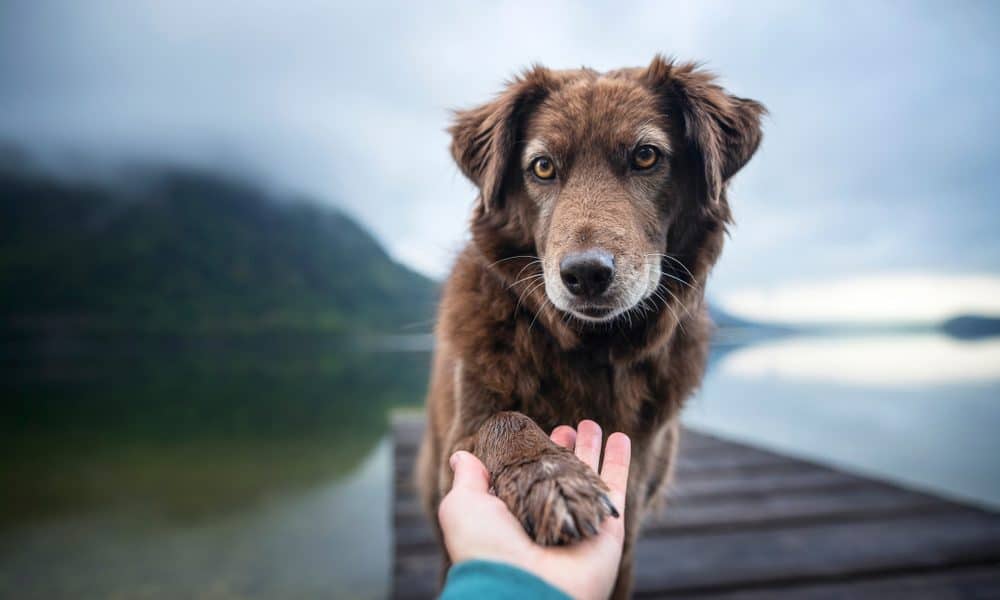
Confidence is as important for our canine companions as it is for us. A confident dog is more likely to be well-behaved, social, and less anxious. Just like humans, dogs can experience a lack of self-esteem, which can lead to behavioral issues. Fortunately, several strategies can help you boost your dog’s self-esteem and create a more confident and contented pet.
1. Positive Reinforcement: The Power of Praise and Rewards
Positive reinforcement is a cornerstone of dog training. Whenever your dog exhibits good behavior, use praise, treats, or toys to reward them. Positive feedback and rewards create a strong association between good behavior and positive outcomes, which in turn builds your dog’s self-esteem. When they know they’re doing things right, they become more self-assured.
2. Training and Obedience: Setting Clear Expectations
Training your dog to respond to commands and adhere to rules is a fundamental aspect of fostering their confidence. Dogs feel a greater sense of security when they comprehend the expectations placed upon them. Consistent training, employing precise and clear directives, aids in their understanding of these expectations. Success in following these instructions during puppy training in Utah contributes significantly to the growth of their confidence.
3. Socialization: Expanding Horizons
Exposing your dog to various people, animals, and environments in a controlled and positive manner is essential for their development. Proper socialization helps them become comfortable in different situations, leading to increased self-esteem. Socialization should start early and continue throughout their lives.
4. Regular Exercise: Physical and Mental Stimulation
Exercise isn’t just about keeping your dog physically fit; it also has a significant impact on their mental well-being. Engaging in physical activities releases endorphins, which improve your dog’s mood and overall confidence. Regular exercise also prevents boredom, which can lead to destructive behavior in dogs.
5. Providing Challenges: Mental Stimulation
Dogs love challenges. Introduce mental stimulation through puzzle toys, and games, and teach them new tricks. When your dog completes these challenges, it reinforces their self-confidence. The sense of accomplishment in solving problems or learning new things is as satisfying for dogs as it is for us.
6. Creating a Safe Environment: Home Sweet Home
A dog’s home is their sanctuary, and a safe environment is crucial for building their self-esteem. Ensure that your home is a secure and comforting place for your dog. This includes providing a cozy and safe space for them, free from hazards, and ensuring they have a place to retreat to when they feel overwhelmed.
7. Consistent Routine: The Predictability They Crave
Dogs thrive on routines. A consistent daily schedule for feeding, walking, and playtime provides a sense of security and structure that can help build their confidence. When they know what to expect, they’re less likely to feel anxious or uncertain.
8. Staying Calm and Positive: Be the Leader They Need
Dogs often mirror the emotions of their owners. When you stay calm and positive, especially in challenging situations, you’re reassuring your dog and building their confidence. Your calm demeanor communicates to them that everything is under control, and they can feel safe.
9. Avoid Overcorrection: Emphasize the Positive
When your dog makes a mistake or exhibits undesirable behavior, it’s essential to use redirection and emphasize the right behavior rather than overcorrecting. Overcorrection can lead to a decline in confidence, as your dog may become fearful of making mistakes. Focus on guiding them towards the correct behavior and rewarding their successes.
10. Quality Time Together: Strengthening the Bond
One of the most effective ways to boost your dog’s self-esteem is to spend quality time together. Engage in activities your dog enjoys, whether it’s playtime, going for walks, or simply cuddling on the couch. These moments not only strengthen your bond but also communicate to your dog that they are cherished and valued.
Conclusion
Building your dog’s self-esteem is a continuous process that requires patience, consistency, and a deep understanding of your dog’s unique personality and needs. By implementing these strategies, you can help your dog become a more confident, well-adjusted companion. A confident dog is not only happier and more content but also more likely to exhibit positive behaviors and be a joy to have as a part of your family. So, start boosting your “confidence canine” today and watch them thrive!












Comments